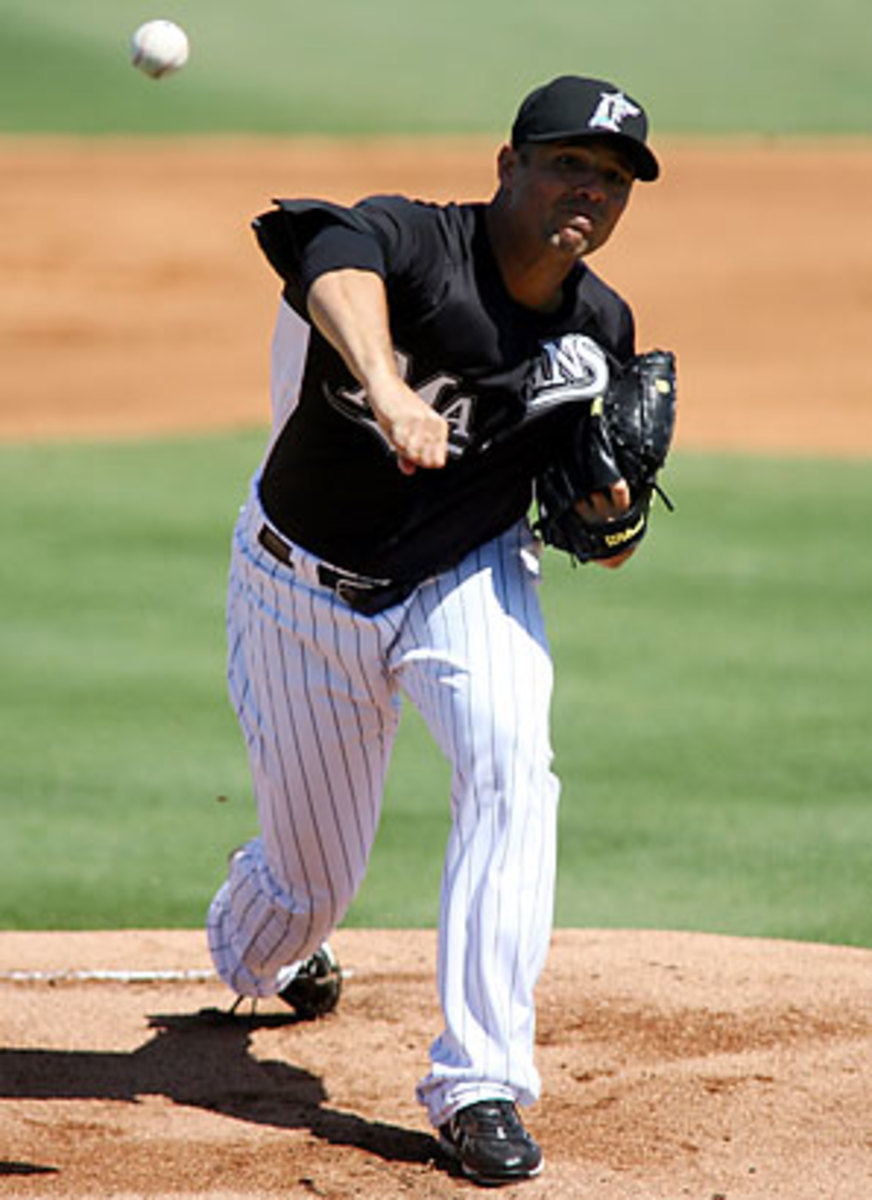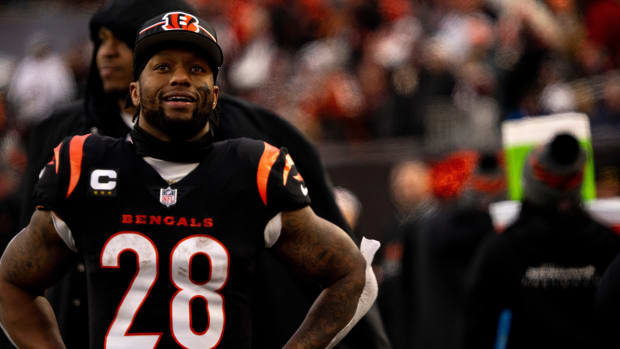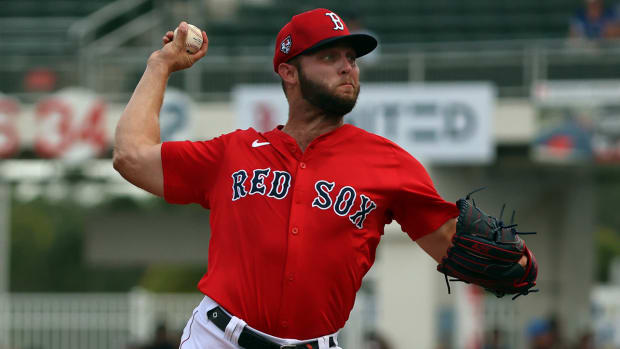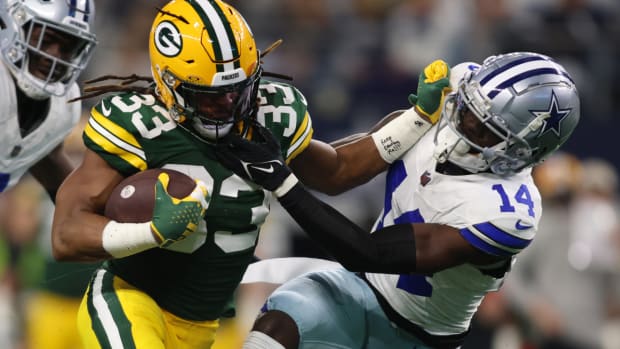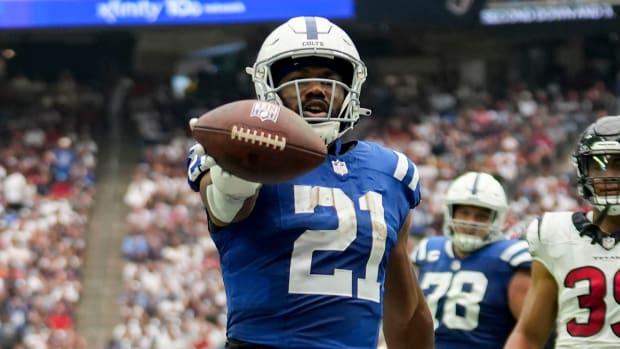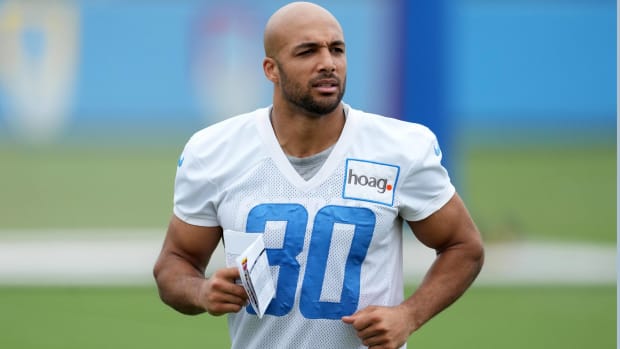Fantasy baseball mailbag
It's about two weeks before Opening Day. On to the mail ...
I'm in a 10-team NL-only league. Which of the two sides in this deal would you prefer: Javier Vazquez ($16) or Marlon Byrd ($11) and Bud Norris ($3)?-- Jeff, Raleigh, N.C.
An aging veteran hurler or, for virtually the same cost, a solid outfielder and an up and coming flame thrower who often has no idea where he is throwing the ball.
From 2000-09, Vazquez was the only pitcher in baseball who tossed at least 195 innings, with 10 wins and 150 strikeouts each season. That streak came to a crashing halt in 2010. He did win 10 games, but he tossed only 157.1 innings and punched out a mere 121 batters. Did he simply wear down from years of use?
In his career, Vazquez's average fastball has been 91 mph, but last year that number dropped to 88.7. Less heat equaled less Ks and his K/9 rate of 6.92 was more than a full batter below his career rate of 8.07. Last year was also the first time the mark was below 8.00 since '04. Vazquez also had a walk rate of 3.72, his first season with a mark over 3.00 since, get this, the 20th century (1999). On the plus side he is back in the NL, where he owns a career ERA of 4.02 with a WHIP of 1.24. He's also going to pitch his home games in a park that helps to hold down the homers, an important factor for a hurler who has allowed 1.20 HR/9 in his career. Will the return to the Senior Circuit, combined with the better home ball yard, be enough to return him to glory?
Byrd isn't worthy of being leaned on mixed leagues, but he is just the type of performer that helps to win league specific setups. Only once in his five seasons of at least 400 at-bats has he hit more than 12 homers, knocked in more than 70 runs or scored more than 70 times, but over the last four seasons an average Byrd season has produced a 5x5 line of .294-13-70-70-6. Moreover, the last four years he has never hit below .283. There could be some concern about everyday playing time if everyone stays healthy in the Cubs' outfield, but there isn't much doubt that if Byrd is given 500 at-bats that he will once again be a solid producer, even if none of his numbers jump off the page.
As for Bud Norris, I've already written about his outlook for '11 in Which Pitchers Should I Target? Let me sum up my thoughts -- he throws gas (he was 10th in baseball last year in K/9 among hurlers who tossed 100-innings at 9.25), batters can't hit him when he is on (.235 BAA in the second half), but he can lose the strike zone as well as any hurler in the league (4.51 BB/9). There is concern about his secondary stuff which might lead to him eventually being moved to the bullpen, and he hasn't looked good in spring (10.29 ERA, 1.57 WHIP in three appearances), but that arm is dynamic -- there just aren't that many starters in the league who can legitimately rack up a strikeout per inning.
So which side "wins" here? The one with two players. Byrd isn't an MVP candidate, but he is a solid, stable performer who can boost any NL-only offense. While Vazquez has history on his side, the depths he fell to last season, coupled with ongoing concerns about the mph on his fastball this spring (he's still unable to reach 90 mph on most of his fastballs), point to him being nothing more than an average hurler, and a somewhat expensive one in this setup. I'd take a chance on the fireballing arm of Norris and the stable production of Byrd, and then go and spend the extra three dollars on another hurler.
I have a nine batters and Jon Lester as my only starting pitcher. I was wondering if I should still be seeking out quality bats for backups or potential future keepers, or should I start grabbing quality pitching?-- Andrew, Topsham, Maine
The age old question ...
I'm on record saying I'm in favor of waiting on pitching. In fact, I wrote an article about why, in many cases, it makes a lot of sense to let others dive into pitching early, called Ready for the Journey? In that piece I delve into the '10 season and look at all the hurlers who "failed" to live up to expectations, as well as highlighting those guys which came out of nowhere to have strong fantasy seasons. Of course, you could make up similar lists for offense, but the point is really this -- pitchers' performances tend to vary more from one season to the other than do hitters. Also, pitchers are at a much higher risk of a catastrophic injury ending their season (Adam Wainwright) than are hitters. Therefore, in a vacuum, it often makes more sense to go for the elite hitters early -- there will always be pitchers available later.
Think of it this way.
There are five starters and 30 major league teams. That's 150 starters that can be drafted. Each team also has a closer and a setup man that probably should be drafted in standard leagues. That's another 60 pitchers. Add those numbers together and we can say there are 210 pitchers that probably shouldn't scare the hell out of you on draft day. If you are in a 12-team league that starts nine pitchers, then there will be 108 pitchers active in any week. Now, tell me, do you think if there are 210 pitchers who are decent, but only 108 who are starting in a fantasy league at any one time (just over 51 percent of the hurlers mentioned), that you should be able to put together a decent pitching staff if you wait on hurlers?
I'm not sticking to this "plan" above all in any draft. In general, it makes a lot of sense to have one anchor starting pitcher and one reliever in your first 10 selections in a 12-team draft. If that makes you nervous you can go with two starters and a reliever in your first 10 picks. At the same time, there have been many a draft where I came out of the first 10 rounds with one hurler.
The answer to the question is that there is no answer that suffices in all situations. Honestly, it's about performance, risk and value. If your league is going heavy early on pitching you can either (a) jump into the mix or (b) build a juggernaut on offense. An intimate understanding of the player pool is key here as it will help you to know when you simply must get involved in the hurler run. To help you to understand what point that might be, I'd direct you to The Strikeout: Starters, as well as the above linked to piece (Which Pitchers Should I Target?) to help you to understand how to properly evaluate pitchers in the fantasy game.
Ray Flowers can be heard daily on Sirius/XM Radio on The Fantasy Drive, 5-8 PM Eastern, on Sirius 211 and XM 147. Ray's baseball analysis can be found at BaseballGuys.com and his minute to minute musings can be located at the BaseballGuys' Twitter account. To e-mail Ray a question for next week's piece, drop him a line at fantasyfandom@yahoo.com.
































